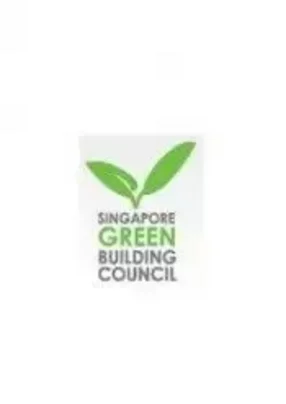
Singapore Green Building Council (SGBC)
The Singapore Green Building Council (SGBC) is a non-profit organisation formed in 2009, with a concerted private-public sector partnership to achieve a world-class and sustainable built-environment in Singapore. SGBC advocates green building design, practices and technologies and seeks to achieve environmental sustainability in the building and construction industry.
Demonstrating the commitment to the green building cause both at home and beyond, SGBC is an established member of the World Green Building Council (WorldGBC), the largest international organization influencing the green building marketplace with a growing network of global GBCs. SGBC is also the Co-Chair of the Asia Pacific Network of GBCs, which translates to direct access to the developments in green building policies and practices in the region.
In turn, SGBC shares these with their members through various large and targeted events to enhance industry capabilities and provide platforms for industry dialogue and latest updates, adding value to their businesses and the community. SGBCmembers are derived from a wide range of organisations across the value-chain of the building and construction industry. Membership has been growing rapidly since formation, and now stands at almost 400 corporate members.
SGBC’s strong membership is a testimony of the support provided by the industry for green buildings in Singapore. Buildings account for more than 30% of the end-use electricity consumption (with households contributing close to 20 percent) in Singapore, giving the building sector a very important role in energy and carbon reduction. This led to the targets set by the Inter-Ministerial Committee on Sustainable Development (IMCSD) for Singapore’s built environment – to green 80 percent of Singapore’s buildings, and achieving a 35 percent improvement in energy efficiency, by 2030.
Green buildings in Singapore are supported by comprehensive policies and programmes by the Government. Green building development is guided by a rating scheme – the BCA Green Mark by the Building and Construction Authority (BCA). Since April 2008, new buildings and existing ones that undergo major retrofitting are required to meet a minimum environmental sustainability standard that is equivalent to the Green Mark Certified level. This has led to more than 1,500 green buildings in Singapore, translating to a floor area of nearly 47 million square meters, or 20 percent of Singapore buildings’ total Gross Floor Area (GFA).
The demand for green buildings has also led to an increase in demand and appreciation for green products and services. With many products and services in the marketplace claiming to be green, trustworthyenvironmental credentials have become crucial to provide clear differentiation. SGBC launched its certification scheme for green building products in 2010. It is the first dedicated green building product certification scheme that adopts an integrated and multi-criteria approach in its assessment. The Singapore Green Building Product (SGBP) certification scheme has the support of the BCA and complements the BCA Green Mark. It is also highly regarded by the building industry in both Singapore and the region as the green standard for building products.
SGBP assessment criteria were developed by about 100 building professionals and experts in Singapore. The multi-tiered certification scheme adopts an independent, third-party approach that complies with the ISO 14020 Type I International Standard for environmental labeling. It is also based on comprehensive product life-cycle assessment to determine a product's long-term impact on the environment. Since inception, over 400 building products have been certified by SGBC.
With the various activities and programmes in place, SGBC aims to make green building products and services more readily available, to positively impact the growing building industry in Singapore and the region.

